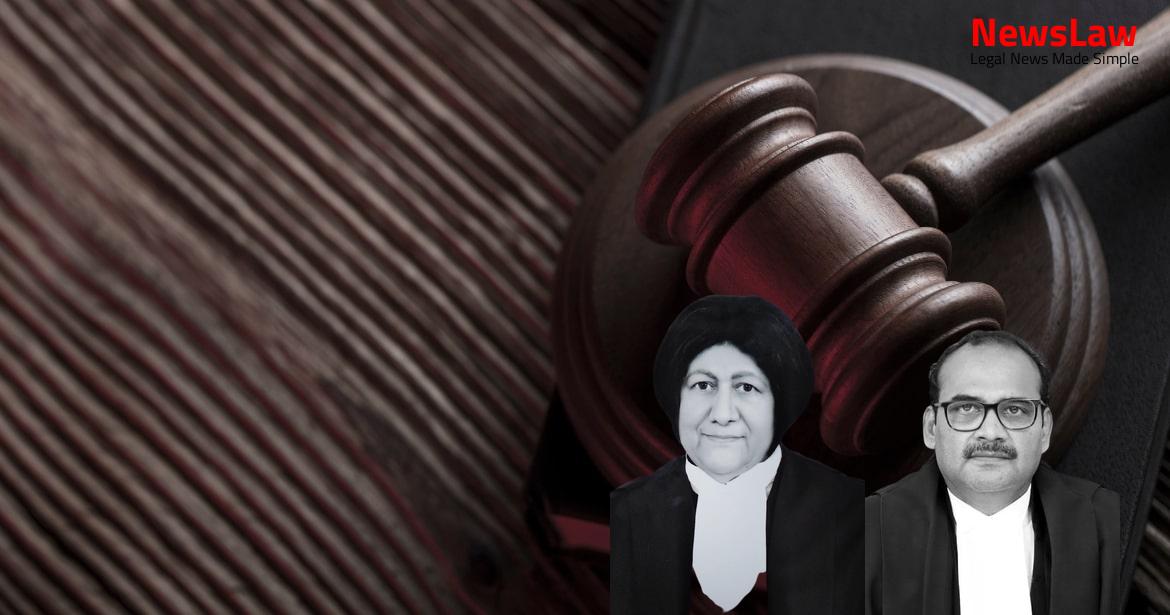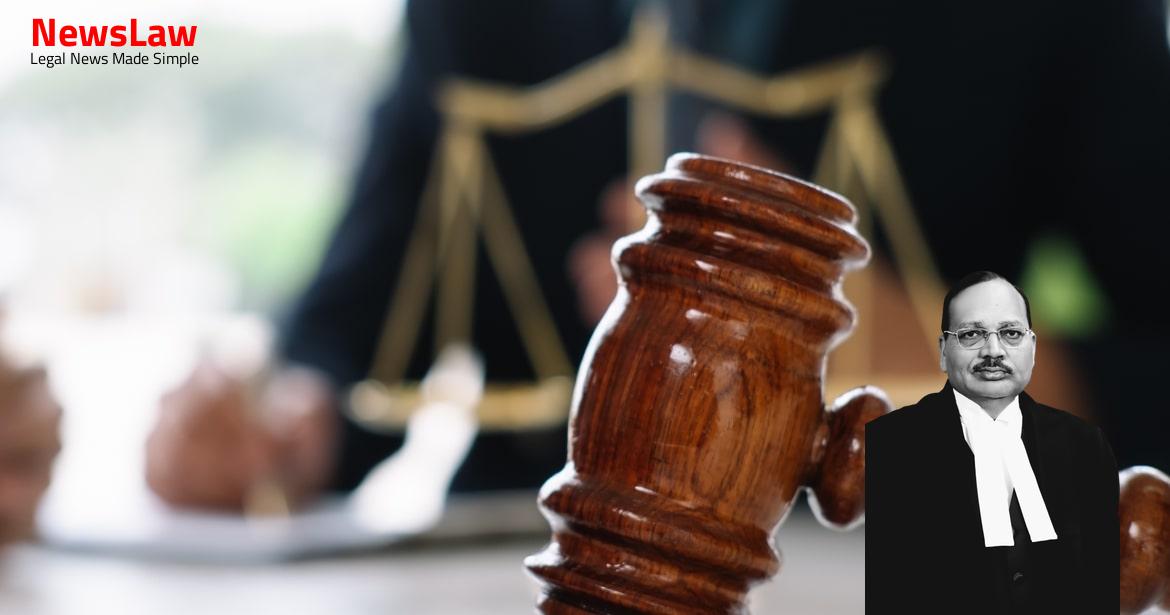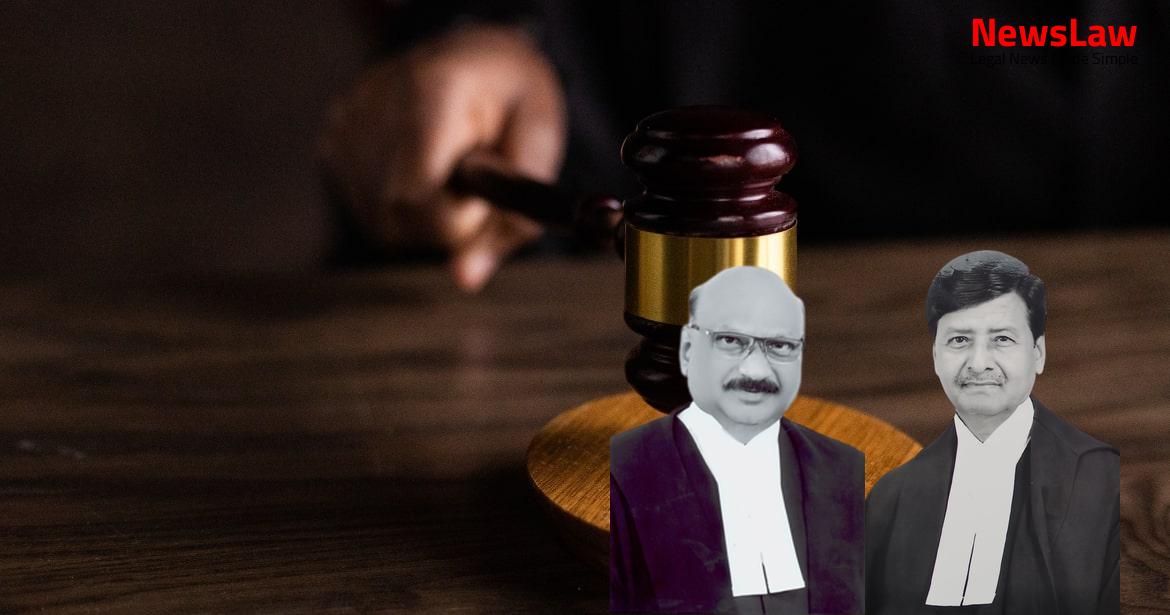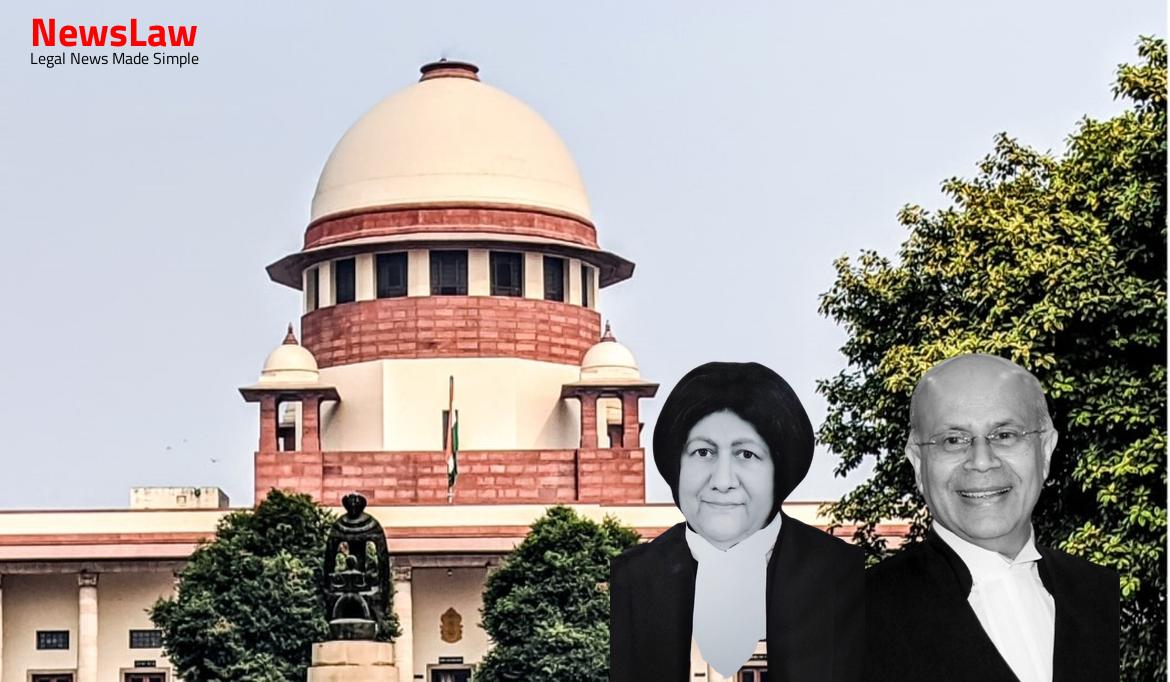Delve into the intricate legal analysis of property inheritance and the rights of bonafide purchasers as per the recent court judgement. The case involves a thorough examination of inheritance rights, validity of wills, and the status of innocent purchasers. The court’s findings highlight the importance of legal due diligence and the intricacies of property transactions.
Facts
- Defendants No.2 and 3 claimed to be bonafide purchasers of the subject property sold by Defendant No.1 to them.
- Defendants argued that Defendant No.1-Nand Kishore, as per a Will dated 09.12.1975, inherited the property after the death of Pt. Lahori Ram.
- Defendants also claimed that the Plaintiffs’ father, Krishna Kumar, had no right to execute a Will in favor of his second wife, Sushila Kumari.
- The Trial Court observed delays in actions by the Defendants regarding the registration and possession of the property.
- The Lower Appellate Court upheld that Krishna Kumar inherited the property of Pt. Lahori Ram as the sole legal heir.
- The Will dated 20.10.1993, in favor of Sushila Kumari, mother of the Plaintiffs, was proved with witnesses’ testimonies.
- Plaintiffs filed a suit claiming possession and compensation from Defendants No.2 and 3 for their occupation of the property.
- High Court held that no substantial question of law arises warranting interference and dismissed the RSA.
- Sale Deed dated 04.05.2006 was deemed illegal and void as Defendant No.1 had no right to alienate the Subject Property.
- Court concluded that Trial Court rightfully decreed the suit of Plaintiffs, declaring them owners in equal shares of the subject property.
- Krishna Kumar provided valid reasons for executing the first and last Will dated 20.10.1993 in favor of Sushila to avoid further litigation.
- Defendants filed RSA against the First Appellate Court’s judgment, which was dismissed by the High Court.
- High Court confirmed the orders of the Trial Court and First Appellate Court, decreeing the suit for possession and mesne profit in favor of the Plaintiffs.
- Trial Court found Plaintiffs to be daughters of Sushila Kumari who succeeded her estate post her death.
- Trial Court concluded Defendant No.1 and Plaintiffs were proved to be the children of Lt. Krishna Kumar.
- Plaintiffs were not entitled to compensation from Defendants No.2 & 3 as they were not in unauthorized occupation of the subject property.
- Defendants No.1, No.2, and No.3 filed First Appeal against the Trial Court’s judgment, which was heard by the Additional District Judge, Ferozepur.
Also Read: Analysis of Financial Statements as Acknowledgment in Limitation Act Case
Arguments
- Defendant No.1 obtained a non-encumbrance certificate and published a public notice regarding the title document before the purchase.
- Appellants claim their rights as bona fide purchasers were ignored in the previous court decisions.
- Appellants argue that the declaration of Krishna Kumar as the sole legal heir was flawed as he had siblings that were not considered.
- Plaintiffs are accused of hiding crucial information about Krishna Kumar’s previous marriage and children in their possession suit.
- There is no evidence to prove Sushila’s legal status as the wife of the deceased after the death of Bimla Rani.
- Plaintiffs did not challenge the sale deed or construction for a year, indicating acceptance of Defendants No.2 & 3’s rights.
- Purchase of the property was made after proper verification of records, including house tax assessments.
- Learned counsel for the Respondents argued that it was the duty of the Defendants to prove that the Plaintiffs had concealed material facts.
- The issue of concealment of facts was not emphasized during arguments before the Trial Court, leading to the decision being in favor of the Plaintiffs.
- The Respondents pointed out that the finding of fact regarding the concealment of material facts was established by the three Courts below.
Also Read: Analysis of Territorial Jurisdiction in Arbitration Transfer Petition
Analysis
- Defendants no.2 & 3 cannot acquire any title from Defendant no.1 as per the finality of the issue.
- The finding by three Courts is not perverse or illegal and does not warrant interference in the appeal.
- Krishna Kumar being the sole owner, alienated his rights to Sushila Kumari, and Defendant no.1 cannot claim rights through the Will.
- The sale deed executed by Defendant No.1 in favor of Defendants No.2 & 3 does not grant them better title than Defendant No.1.
- The Court established that Krishna Kumar was the sole owner of the inherited property from Lt. Pt. Lahori Ram and had the right to execute the Will in favor of Sushila Kumari.
- The Will in favor of Sushila Kumari was proven and the rights can only be transferred to Defendants No.2 & 3.
- Defendants could have proposed an amendment in the written statement if they discovered Krishna Kumar was not the sole legal heir, but they did not.
- Lt. Pt. Lahori Ram’s ownership of the property and the execution of two Wills were discussed in detail.
- The Will dated 09.12.1975 in favor of Defendant no.1 was not proven, and neither of the Wills transferred the rights of Lt. Lahori Ram.
- Defendant No.1 did not have any title or interest in the property to pass on to Defendants No.2 & 3.
- Sushila Kumari became sole owner based on the proved Will dated 20.10.1993, and the Plaintiffs inherited from her.
- Defendants No.2 & 3 claimed rights as bonafide purchasers from Defendant No.1-Nand Kishore through a registered sale deed.
- Krishna Kumar, as the sole legal heir, acquired title through the Will in favor of Sushila Kumari.
- The findings by the lower Courts, affirmed by the High Court, are not deemed to be perverse or illegal, and do not warrant interference under Article 136 of the Constitution of India.
- The Plaintiffs have not directly challenged the Sale Deed dated 04.05.2006, instead requesting the Courts to ‘ignore’ it.
- The Defendants argue that the rights of innocent bonafide purchasers who bought the property after payment of lawful consideration and conducted new construction should not be adjudicated.
- The validity of the Sale Deed is not being commented upon, and is left open for the Appellants to pursue through legal means.
Also Read: Interpretation of Corporate Guarantor under IBC
Decision
- The appeal lacks merit
- The appeal is dismissed
Case Title: AMAN SHARMA Vs. UMESH (2022 INSC 657)
Case Number: C.A. No.-004638-004638 / 2022



